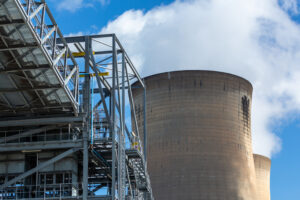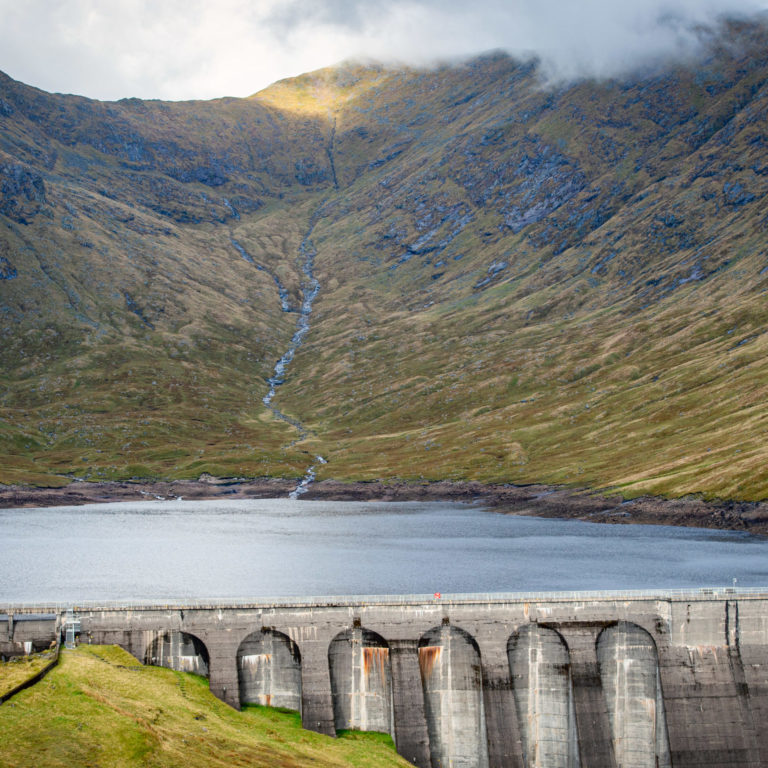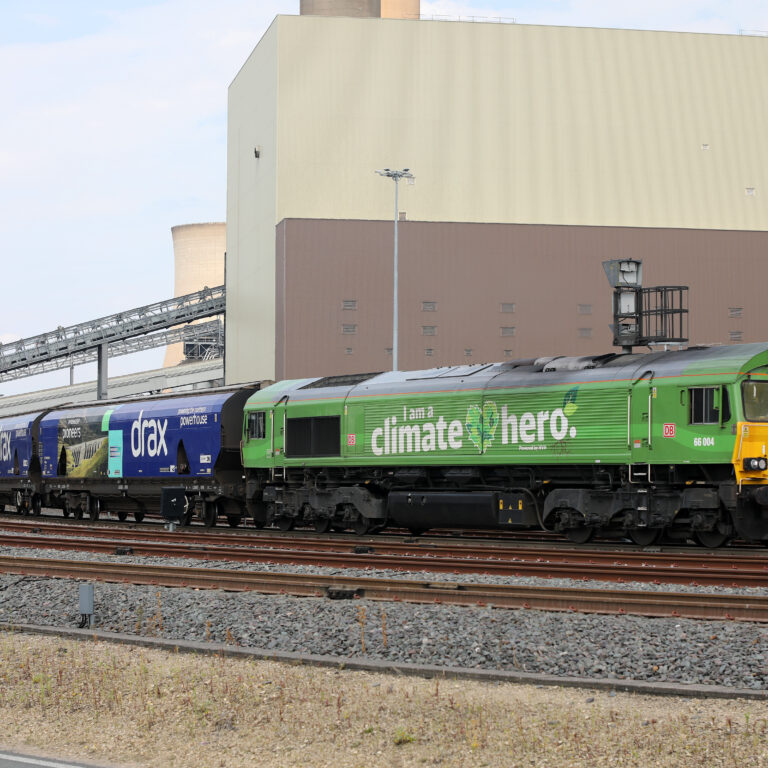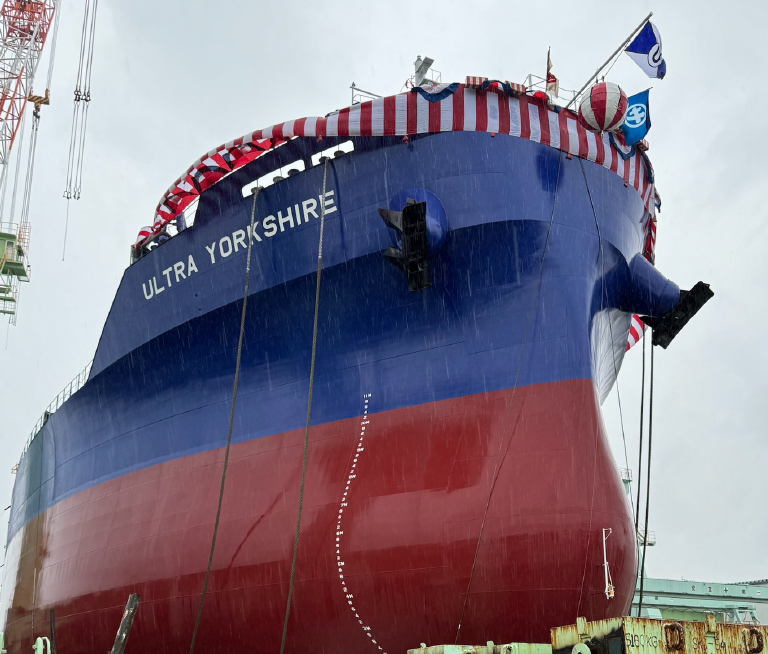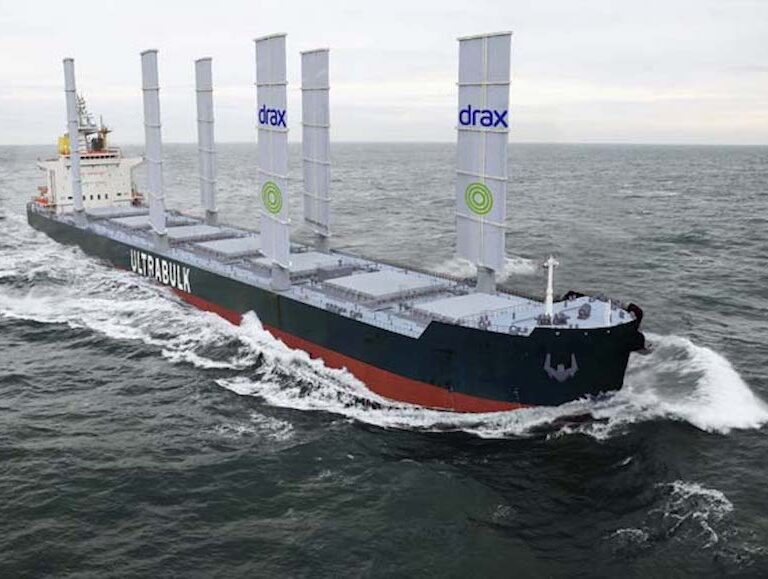- Link to Drax Power Station kept open with 24-hour-a-day monitoring after huge flooding damage
- Divers, drones and helicopters deployed to monitor the route since February
- Over 90 trains per week still able to use route whilst repairs carried out
The line into Drax Power Station was inundated with flood water in February when the nearby River Aire burst its banks.
With the Selby plant supplying 5% of the UK’s electricity, it was vital to keep services moving during the Covid-19 crisis while repair work was carried out. Engineers have been deployed on 24-hour-a-day shifts to maintain the constant safety reassurance required to keep freight trains running.
Chris Gee, Head of Operations for Network Rail’s North and East Route, said:
“This was an unprecedented operation to deal with an unprecedented situation.
“It’s never been more important for us to keep freight services running, so we pulled out all the stops to maintain this vital link while we conducted repair work at the same time.
“Our teams have worked non-stop to make sure that crucial deliveries of sustainable biomass have been able to run despite severe flooding, which has been incredibly important to keep the nation powered up.
“This has been a real team effort and shows the dedication of the rail industry to vital services moving during this national crisis.”
One of two lines leading in and out of Drax Power Station in Selby, Yorkshire, had to close in February when water from the nearby River Aire flooded the area. But engineers were able to keep one route open to allow vital freight services transporting sustainable biomass to keep the nation powered up during the Covid-19 pandemic.
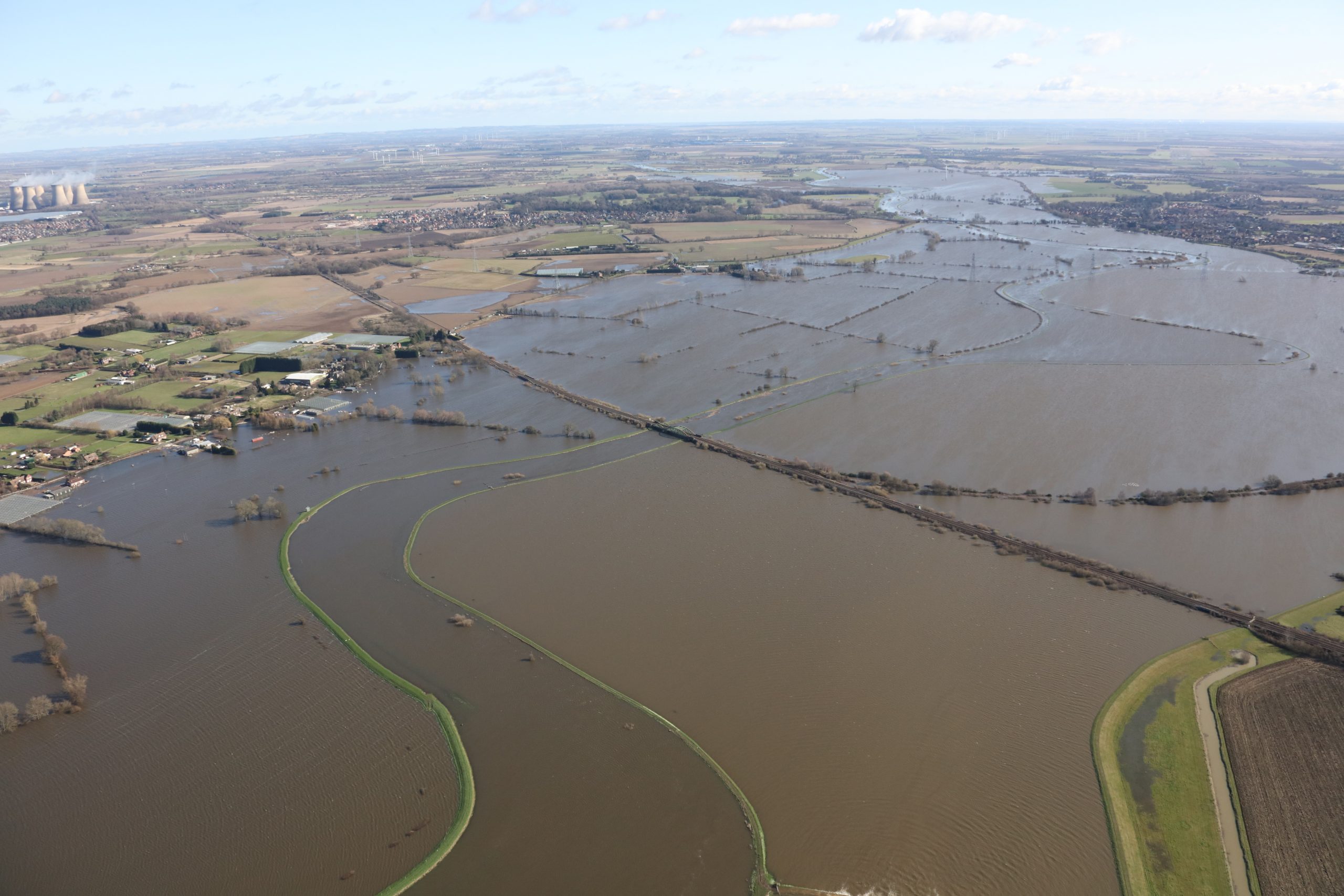
Image showing the February floods affecting the railway line leading to Drax Power Station
The damaged line has now reopened following significant repair work by Network Rail. Deliveries were maintained while the work took place, with over 90 freight trains a week transporting biomass to the plant.
This was made possible by the rail industry working together and the dedication of Network Rail, and their contractors CML, who took up shifts 24 hours a day to keep watch of the site and make sure that trains could use the line safely. A crucial job was monitoring the railway embankment for any further movement following the damage caused by floods.
The emergency repair work cost £300,000 and included unconventional methods to make sure that the line could reopen as quickly as possible. This included using a team of divers to inspect structures which were underwater to check for damage, as well as flying drones and helicopters along the route to assess the extent of the damage.
Significant repair work to the track needed to take place before it could reopen, such as replacing ballast, the stones, which support the track, after sections of it were washed away by flood water.
The team faced an additional challenge when they discovered that several Koi Carp from a nearby private residence were on the railway, when the pond they were in also flooded. Network Rail teams worked closely with the landowner to safely transport them home.
Keeping freight services moving is of vital importance during the Covid-19 crisis, with the transportation of sustainable biomass helping to keep the lights on across the country. Network Rail is working on ways to improve resilience on the line, in a £2.5million investment, and are currently in the design stage of this project.
Rail Minister Chris Heaton-Harris said:
“Freight plays a vital role in ensuring critical food and supplies can continue moving smoothly at this challenging time. It is fantastic news that this important line has reopened, and once again I want to thank frontline staff for their efforts.”
Nigel Adams MP said:
“The flooding in February showed how important it is to respond immediately to flooding events when roads are closed, homes flooded and in this case the railway line delivering biomass fuel to Drax Power station was seriously damaged.
“Fortunately, Drax Power station was able to continue to generate electricity because Network Rail responded immediately by introducing emergency operational procedures. I am delighted that Network Rail have now completed the repair of the embankment and the line is back to two tracks working.”
Drax CEO Will Gardiner said:
“The teams who worked tirelessly at Network Rail, on the UK rail freight system and at Drax to ensure deliveries of sustainable biomass were maintained throughout the repair work, so we can continue to generate the power the country needs during the Covid-19 crisis, have done a tremendous job.
“The health, safety and wellbeing of these teams are vital and we have implemented strategies to reduce the chances of spreading the virus.”
“These rail deliveries are a critical part of our global supply chain for sustainable biomass that supports thousands of jobs and has delivered economic growth across the north of England, while supplying renewable electricity to millions of homes and businesses.”
John Smith, GB Railfreight Managing Director said:
“Huge credit to Network Rail and their contractor, CML, who have carried out the repairs so quickly whilst also managing to keep the railway partially open in the meantime.
“The efforts applied demonstrate again the importance of rail freight during these trying times in keeping the lights on and food on the tables. GBRf is committed to continuing and re-doubling its efforts to ensure that freight continues to move around the country during these unprecedented times.”
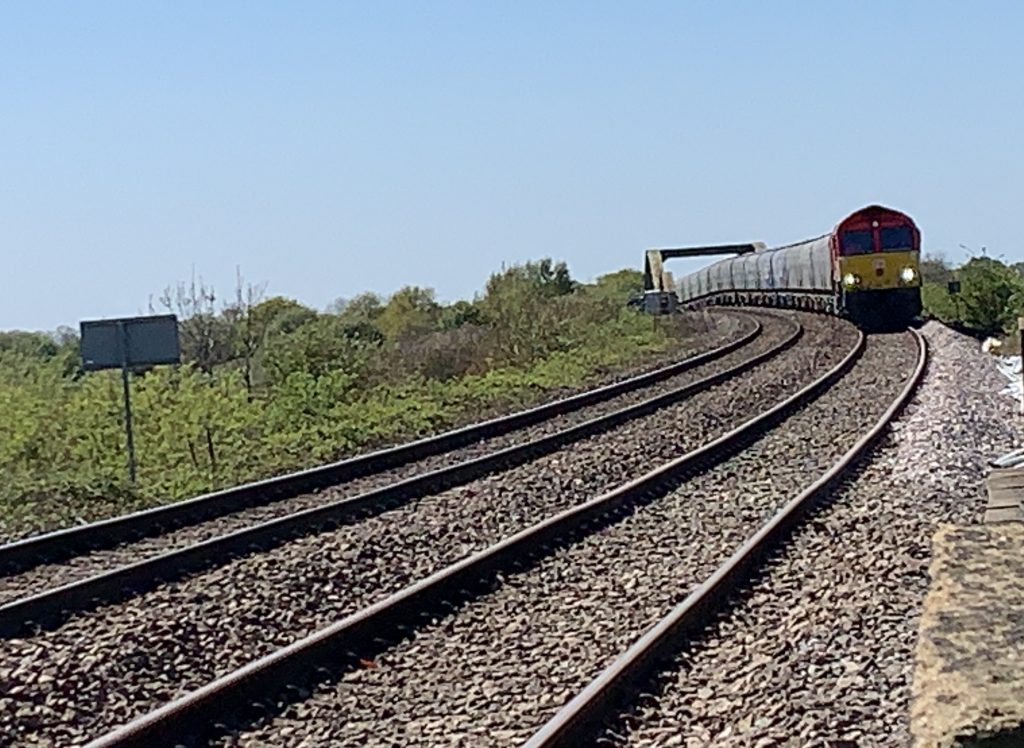
DB Cargo UK’s Head of Sales Roger Neary said:
“DB Cargo has been working closely with both Drax and Network Rail. The communication and collaboration by all parties has been brilliant ensured a seamless supply of material to the power station.
“During the COVID 19 pandemic, we continue to work with Drax Power Station to provide essential biomass fuel by rail from Immingham. DB Cargo UK delivers on average 65 trains per week, around 4,500 tonnes, of biomass which Drax uses to supply the UK power network. It’s great to be able to play a part in keeping the UK running during these difficult times.”
ENDS
Media contacts:
Drax
Selina Williams
Drax Group Media Manager
E: [email protected]
T: 07912 230 393
Network Rail press office
Amy Brenndorfer
Media Relations Manager
E: [email protected]
T: 01904 383 180
T: 07730 359 569
About Drax
Drax Group’s purpose is to enable a zero carbon, lower cost energy future and in 2019 announced a world-leading ambition to be carbon negative by 2030.
Its 2,900-strong employees operate across three principal areas of activity – electricity generation, electricity sales to business customers and compressed wood pellet production.
Power generation:
Drax owns and operates a portfolio of flexible, low carbon and renewable electricity generation assets across Britain. The assets include the UK’s largest power station, based at Selby, North Yorkshire, which supplies five percent of the country’s electricity needs.
Having converted two thirds of Drax Power Station to use sustainable biomass instead of coal it has become the UK’s biggest renewable power generator and the largest decarbonisation project in Europe.
Its pumped storage, hydro and energy from waste assets in Scotland include Cruachan Power Station – a flexible pumped storage facility within the hollowed-out mountain Ben Cruachan. It also owns and operates four gas power stations in England.
Customers:
Drax owns two B2B energy supply businesses:
Haven Power, based in Ipswich, supplies electricity and energy services to large Industrial and Commercial sector businesses.
Opus Energy, based in Oxford, Northampton and Cardiff, provides electricity, energy services and gas to small and medium sized (SME) businesses.
Pellet production:
Drax owns and operates three pellet mills in the US South which manufacture compressed wood pellets (biomass) produced from sustainably managed working forests. These pellet mills supply around 20% of the biomass used by Drax Power Station in North Yorkshire to generate flexible, renewable power for the UK’s homes and businesses.
For more information visit www.drax.com
About Network Rail
We own, operate and develop Britain’s railway infrastructure; that’s 20,000 miles of track, 30,000 bridges, tunnels and viaducts and the thousands of signals, level crossings and stations. We run 20 of Britain’s largest stations while all the others, over 2,500, are run by the country’s train operating companies.
Every day, there are almost five million journeys made in Britain and over 600 freight trains run on the network. People depend on Britain’s railway for their daily commute, to visit friends and loved ones and to get them home safe every day.
Our role is to deliver a safe and reliable railway, so we carefully manage and deliver thousands of projects every year that form part of the multi-billion pound Railway Upgrade Plan, to grow and expand the nation’s railway network to respond to the tremendous growth and demand the railway has experienced – a doubling of passenger journeys over the past 20 years.
Visit our online newsroom: www.networkrailmediacentre.co.uk





